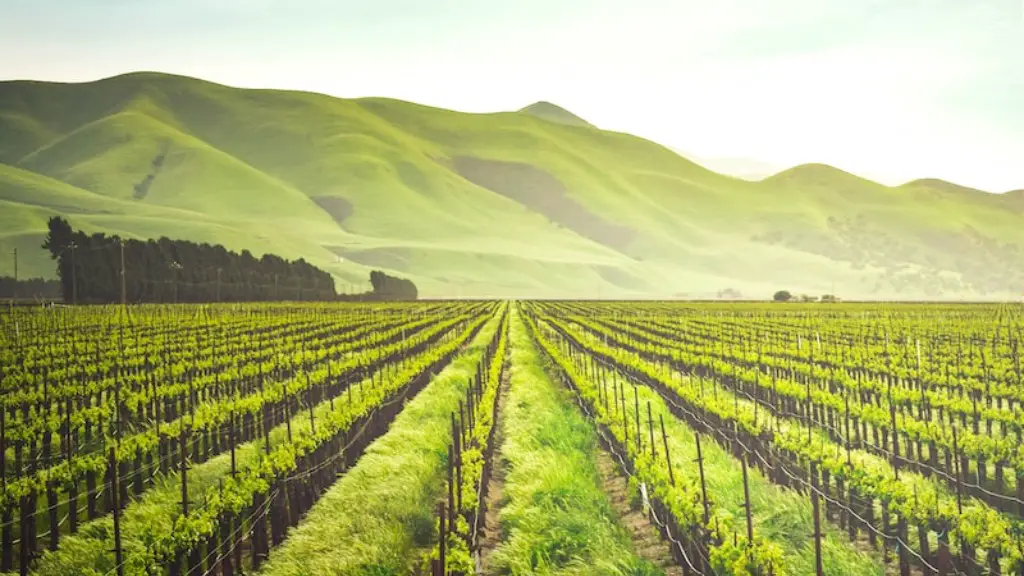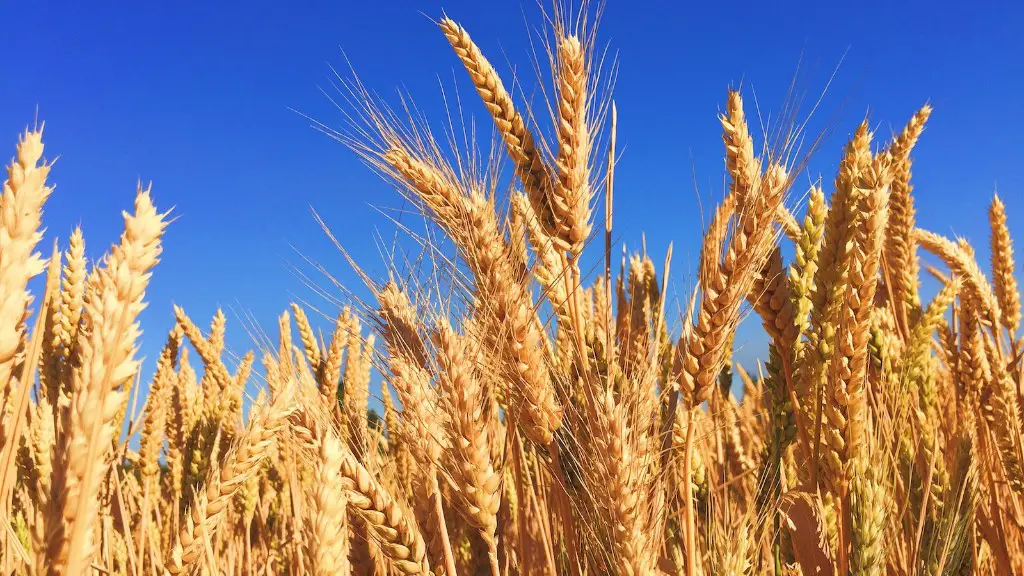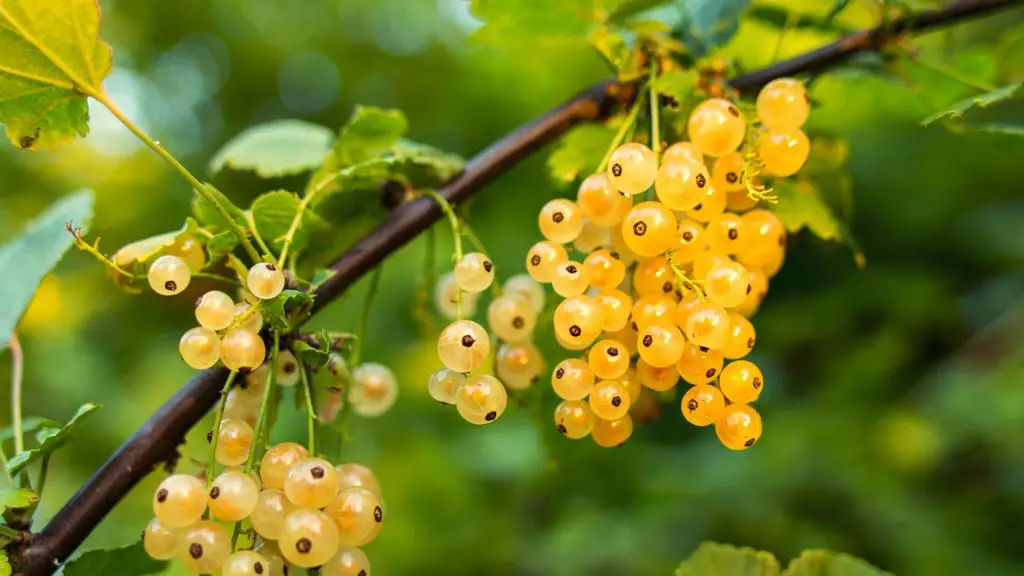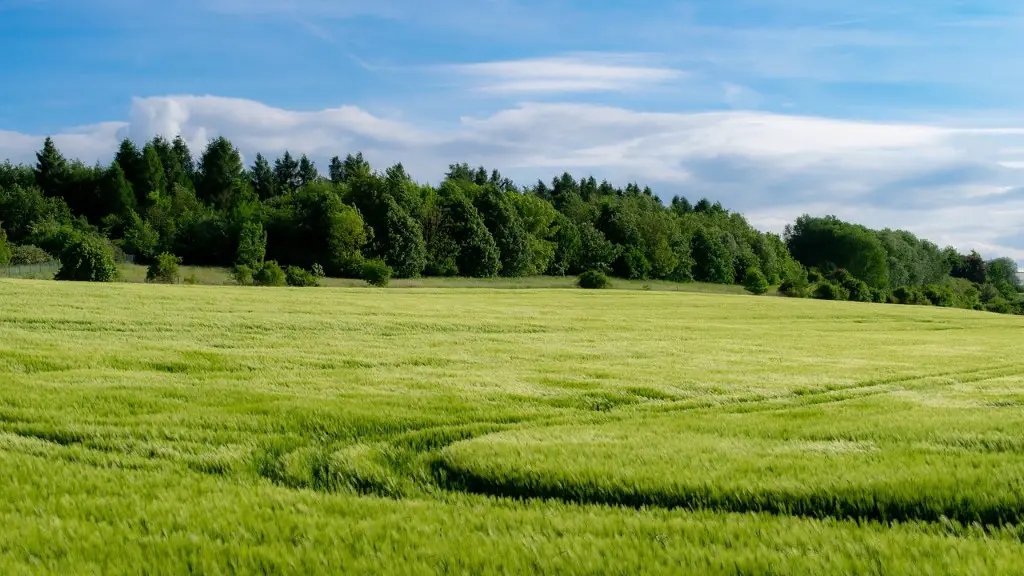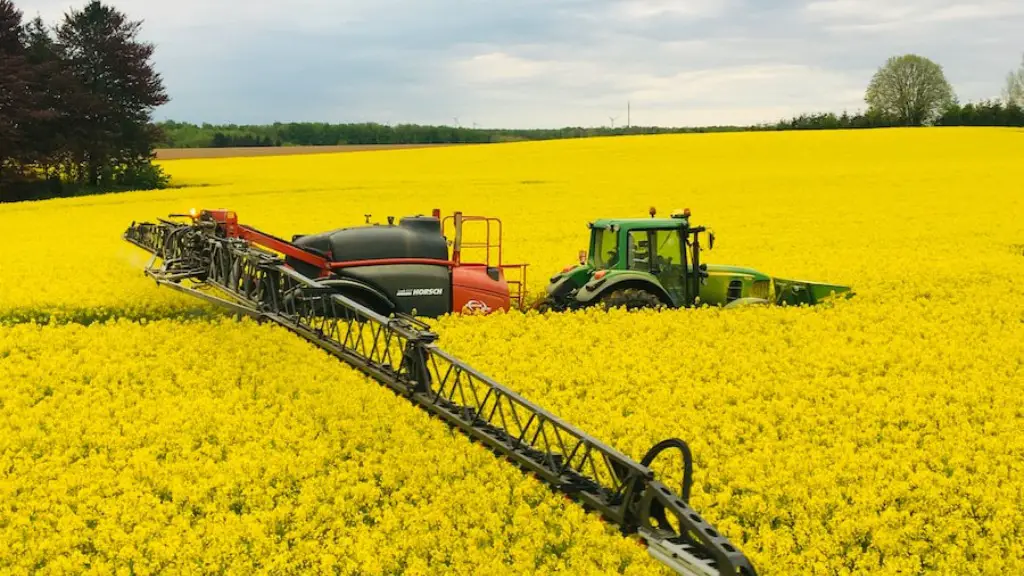Industrial agriculture has been in existence since the mid-1800s. It began with the invention of horses and the invention of agricultural machinery. Prior to this, the majority of income was earned through barter and subsistence farming. With the invention of horses and the invention of agricultural machinery, industry was able to expand and produce food more efficiently. This allowed for a larger quantity of food to be produced, allowing for industry to create a market for the sale of food.
Industrial agriculture is focused on the production of large amounts of food, with the goal of maximizing profits. It is done through monoculture, which is the practice of planting and growing one type of crop over large areas. This method of agriculture allows for greater efficiency and yields in the production of food, however it can have negative impacts on the environment, particularly in regards to soil degradation, air and water pollution, and water scarcity.
The development of industrial agriculture was a result of the industrial revolution, where improvements in technology made it possible to produce food at a much faster and more efficient rate. The invention of the tractor, for instance, allowed for the large-scale cultivation of land, as well as the use of chemical fertilizers and pesticides. The mechanization of agriculture allowed farmers to increase yields and make more money than they could have before.
In the early 20th century, nitrogen fertilization was introduced, and this allowed for the production of crops at a larger scale. This also made it possible for industrial farmers to produce crops year-round, increasing efficiency and increasing profits. The invention of genetically modified crops in the 1990s has allowed for even greater efficiency and profits, as these crops are designed to be resistant to pests and can produce a greater yield.
In addition to technological advances, industrial agriculture has also been aided by the economic policies of governments. Governments have often provided subsidies to farmers to encourage them to produce large amounts of food. This has allowed industrial agriculture to expand and become a dominant agriculture system.
Industrial agriculture has its advantages in terms of efficiency and profitability. It has allowed large-scale production of food and its practices can be used to maximize yields and profits. However, it has also had negative impacts on the environment, particularly with regards to soil degradation, water pollution, and water scarcity.
Environmental Impacts of Industrial Agriculture
Industrial agriculture has had a significant impact on the environment, with regards to soil degradation, water pollution, and water scarcity. The intensive use of chemical fertilizers and pesticides, for instance, has had a detrimental effect on the quality of soil, leading to degradation. These chemicals have caused nitrogen and phosphorus runoff, leading to an excessive growth of aquatic plants and death of fish, as well as contamination of drinking water.
In addition, industrial agriculture has created water scarcity by way of the frequent use of irrigation water. This has led to a decrease in the availability of underground water, resulting in water shortages and droughts in many areas. Moreover, industrial agriculture has caused air pollution, due to increased levels of nitrogen dioxide and particulates, leading to respiratory illnesses and climate change.
The environmental impacts of industrial agriculture are far-reaching and cannot be ignored. These impacts have led to calls for changes in agricultural practices, such as the use of organic and sustainable farming methods, and the conservation of water resources.
Social and Economic Impacts
The impacts of industrial agriculture extend beyond the environment, with significant social and economic implications. In terms of social impacts, industrial agriculture has been criticized for its lack of consideration for the needs of small-scale farmers and its focus on maximizing profits. This has led to displacement and poverty, as well as competition for resources and land.
Industrial agriculture also has significant economic implications. The increased reliance on technology and mechanization has made it more expensive for farmers to produce food, with higher input costs such as seeds and fertilizers. Additionally, large scale production limits the ability of small-scale farmers to compete, making it difficult for them to remain economically viable.
In addition, the economic incentives of industrial agriculture often result in farmers focusing on producing large amounts of food, rather than focusing on quality. This has led to a decrease in biodiversity and a reliance on highly processed foods. This has in turn led to health issues, such as an increase in obesity, diabetes and other diet-related conditions.
Alternatives to Industrial Agriculture
Due to the impacts of industrial agriculture, there is a growing trend towards alternatives such as organic and sustainable farming. Organic farming is the practice of producing food without the use of chemicals and other synthetic inputs, such as pesticides and fertilizers. This is a more sustainable and environmentally-friendly agricultural method, with fewer impacts on the environment, as well as improved soil health.
Sustainable farming is also a more ecological and cost-effective form of farming. This approach makes use of renewable resources and improves soil fertility, as well as producing higher-quality food. In addition, sustainable farming is more resilient to climate change, and reduces the impact of soil erosion and water pollution.
The use of alternatives to industrial agriculture, such as organic and sustainable farming, is becoming increasingly popular among small-scale farmers. This is due to the less intensive nature of these farming methods, as well as their decreased environmental impact. In addition, these methods can be economically viable, as they require fewer inputs and are more resilient to changing environmental and market conditions.
Regulations on Industrial Agriculture
In response to the impacts of industrial agriculture, many governments have implemented regulations and laws governing the industry. These regulations focus on ensuring the safety of the environment, as well as protecting the interests of small-scale farmers. Examples of these regulations include restrictions on the use of certain pesticides, as well as standards for the use of genetically modified organisms.
In addition to regulations, subsidies are often given to small-scale farmers, in order to help them to become more competitive in the face of large-scale industrial farming. These subsidies are designed to offset some of the costs associated with industrial farming, such as the purchase of fertilizers and pesticides.
The implementation of regulations and subsidies can have a positive impact on the industry, as it encourages farmers to switch to more sustainable and environmentally friendly practices. In addition, it creates a more level playing field for small-scale farmers, and allows them to remain viable competitors in the face of industrial production.
The Future of Industrial Agriculture
Industrial agriculture has been the dominant form of agriculture for more than a century, with its efficiency and large scale production. However, its negative impacts have become more and more apparent, leading to a growing concern about the future of the industry.
In order to address the issues associated with industrial agriculture, there is an increasing focus on alternative forms of agriculture, such as organic and sustainable farming. These methods can be more efficient and economically viable, as well as providing environmental benefits. In addition, new technologies such as precision agriculture are being developed to reduce the environmental impact of industrial agriculture.
Ultimately, the future of industrial agriculture will depend on the willingness of governments to support the industry and the implementation of regulations that ensure the safety of the environment and the interests of small-scale farmers. If these measures are taken, it is possible that industrial agriculture can continue to be a major contributor to the global food supply, while still providing its advantages in terms of production and efficiency.
